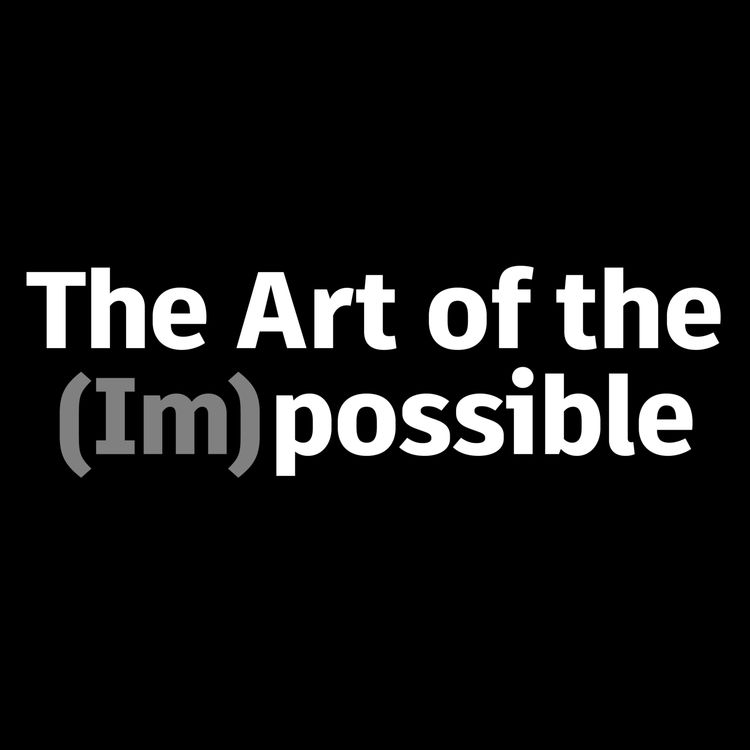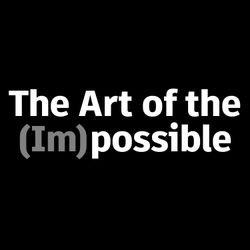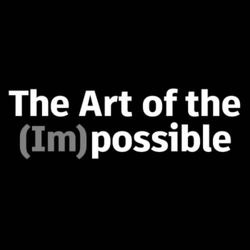Share

The Art of the Impossible
Rethinking Traditional Value Propositions
Season 1, Ep. 8
•
The world of design and manufacturing is digitizing at an exponential rate. Whilst keeping abreast of changes might represent a challenge to some, it also presents a great opportunity for businesses to rethink traditional value propositions and apply them to new products, markets or even business models in timescales once thought of as impossible. But how do we get there? To explore this topic, Asif Moghal is joined by Charlotte Horobin, regional director across the Midlands and East for Make UK, and Ralf H. Komor, from Komor Interim Management.
More episodes
View all episodes

2. Driving people-led change in the manufacturing industry
44:03||Season 5, Ep. 2Joanna Cooper, General Manager at Daimler Truck North America, is proving that people-led leadership drives measurable results. Her approach has already delivered more than $13 million in operational efficiency improvements across the organization.Starting as a Procurement Specialist, Joanna rose through the ranks by embracing digital transformation and leading change with her teams. She grounds her leadership in the ACTIVE framework: Authenticity, Courage, Trust, Integrity, Vision, and Empathy – believing that when people are trained, trusted, and empowered, business success follows.
1. Bolts to bytes: transferring digital transformation principles across industries
38:45||Season 5, Ep. 1Digital transformation is reshaping the design and manufacturing industry, no matter the speciality. Few know this better than Emma Alexander, Chief of Staff (Engineering) at Relativity Space. After starting her career at John Deere, Emma has leveraged her expertise from farm vehicles to aerospace, demonstrating that innovation can be applied across diverse industries.Emma champions iteration over perfection. Rather than delaying change with endless tweaks, she believes in launching, testing, and refining with her team until new practices truly work.In this episode of Art of the (Im)Possible, host Asif Moghal and Emma explore staff-led decision-making, lessons from moving between industries, and how digital transformation will shape the future of engineering.
6. Designing and digitising liveable spaces beyond earth
37:48||Season 4, Ep. 6Space exploration is in a constant state of innovation and development. As we advance understanding of it, astronauts are able to go further, and stay longer, in space. An inevitable step in this evolution is to explore how human habitats can exist in space and beyond. Sebastian Aristotelis is doing just this. As founder of SAGA, an architectural firm specialising in space architecture, he uses his terrestrial experience in extreme environments like the Arctic to build structures fit for elsewhere in the galaxy. With such an impressive goal, Sebastian started SAGA with a clear plan of action: to put human wellbeing first.
5. Revolutionising India’s mini-mobility industry
37:42||Season 4, Ep. 5The automotive industry thrives on the pursuit of innovation—newer, bigger, and better. Vayve Mobility approaches this demand with a unique vision, focusing on agility and sustainability at the core of its vehicle designs.With two models currently on the market, Vayve Mobility creates next-generation cars powered by electric charging and solar energy, aligning performance with environmental responsibility. Headquartered in India, the company designs vehicles specifically tailored to withstand high temperatures and navigate dense traffic seamlessly.Nilesh Bajaj, CEO of Vayve Mobility, has leveraged his expertise in electronics design to spearhead the development of the company’s groundbreaking vehicles. Vayve made history by introducing India’s first line of eCars and earned the 2024 Global Startup Award for Best Greentech of the Year. In this episode, Nilesh delves into Vayve’s digital transformation journey and its vision for shaping the future of the automotive industry.
4. Ensuring net-zero employment rates in the rise of AI
38:07||Season 4, Ep. 4Digital transformation is a constantly evolving process, with new technology rapidly entering the fray. Currently, the biggest buzz centres around artificial intelligence (AI), which offers several opportunities – although some can be controversial. Riddhi Karambelkar is Head of Manufacturing Engineering at Brompton Bicycle and strives to make AI and humans work together. With the belief that new technology should enhance jobs, not replace them, she is streamlining Brompton’s workflow by allowing AI machinery to perform everyday tasks, enabling more time to focus on profound creativity. In this episode, Riddhi shares insights into how to ethically implement digital tools all while valuing the skills of employees.
3. Data visualisation – the key to driving business performance?
46:39||Season 4, Ep. 3Druck has taken a very manual industry and turned it into something very digital. The company specialises in highly-configured pressure sensors developed for a range of applications–from nuclear engineering to aerospace. Claire Aitchison is Druck’s Executive Operations Leader. During her time at the company, she noticed that many customers needed Druck’s products, but didn’t have the resources or budget to go through an extensive trialling process. This led Claire to forming a data-driven solution for Druck customers. She breaks down her approach in the next episode of The Art of the Impossible.
2. Digitising traffic management for cities of the future
47:47||Season 4, Ep. 2Yunex Traffic is a global leader in intelligent traffic solutions. The company creates digital options for a previously practical industry, working with highway authorities to improve the function of roads. Its solutions transform cities into places where people can live, work, and move more freely with a better quality of life.The company maintains a strong focus on sustainability, aiming to reduce emissions in the automotive industry – which accounts for a large portion of the climate crisis. Improved systems such as LED traffic lights and wireless systems cut down on materials like copper and provide a more efficient use of energy that makes the right steps toward a sustainable future for traffic control. Simon Martin, Head of Global Manufacturing for Yunex Traffic, reflects on the company’s digital transformation process, the introduction of AI and AR to its workflow, and its unwavering commitment to sustainability.
1. A transitionary tale – top tips from a product design expert turned consultant
34:45||Season 4, Ep. 1As consumer products become more plentiful and accessible, it is increasingly difficult to get noticed. However, product consultancies like Zentry Point take away this challenge and provide production advice as well as design expertise. Zentrypoint Co-founder, Joe Zak, shares insights from his journey in product design and consultancy, discussing how embracing digital transformation has reshaped both his approach and the outcomes for his clients when bringing a new product to market.
1. dormakaba: creating a flourishing data ecosystem
35:04||Season 3, Ep. 1One of the cornerstones of digital transformation is integration. Making systems work together efficiently so no data is lost is a challenge that all companies face in their journeys. How do you manage it internally and how does it affect other parts of the business? From recruitment to clients and the product itself, we explore how Alexander Bradfisch, Senior Vice President of EntriWorX at dormakaba, found the solution to this challenge, and how this new ecosystem transformed their business.